To navigate solar water heater permits effectively, start by researching your local building codes and zoning restrictions. Prepare detailed system plans that comply with all regulations, including specific requirements for residential installations. Schedule professional inspections before and after installation to guarantee compliance and safety. Don't forget to update your insurance coverage to protect your new investment. Finally, understand any homeowners association rules that might affect your project. By following these key tips, you'll streamline the permit process and avoid potential roadblocks. Dive deeper to uncover more insights that'll make your solar water heater installation a breeze.
Research Local Building Codes
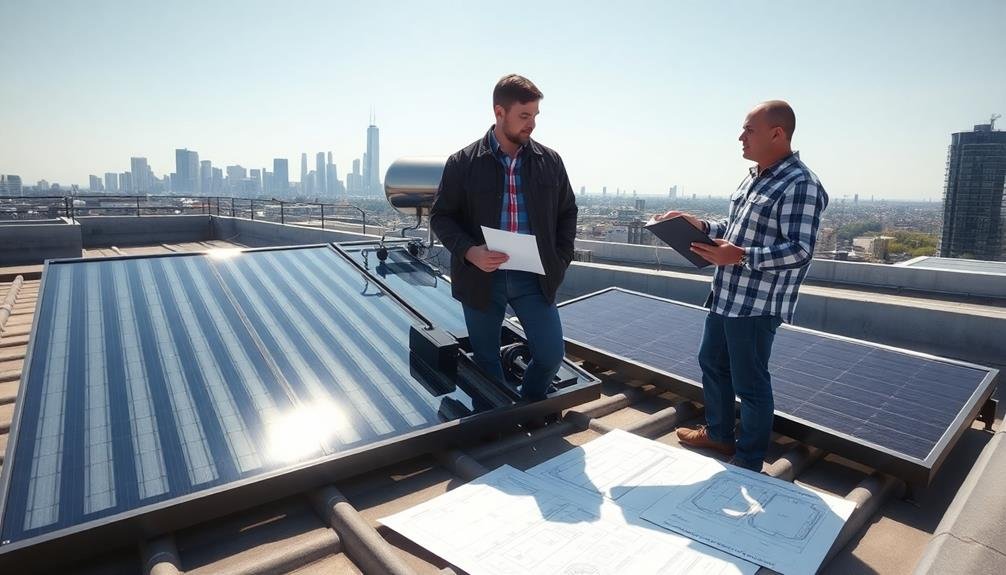
Understanding local building codes is the foundation of a smooth permit process for your solar water heater installation. Start by contacting your local building department or visiting their website to obtain the most up-to-date information on solar water heater regulations. Pay close attention to specific requirements for residential solar installations, as these can vary greatly between jurisdictions.
Look for guidelines on system sizing, placement, and structural requirements. You'll need to know if there are restrictions on roof-mounted systems or if ground-mounted options are allowed. Check for any zoning ordinances that might affect your installation plans. Some areas have specific setback requirements or height restrictions that could impact your project.
Don't forget to review plumbing and electrical codes, as your solar water heater will likely involve both. Familiarize yourself with safety standards, such as those for temperature and pressure relief valves.
If you live in a historic district or have a homeowners association, there may be additional rules to bear in mind. By thoroughly researching local building codes, you'll be better prepared to design a compliant system and navigate the permit process efficiently.
Prepare Detailed System Plans
Once you've wrapped your head around the local building codes, it's time to draw up detailed system plans for your solar water heater. These plans are essential for obtaining permits and ensuring a smooth installation process.
Start by creating a thorough site plan that shows the location of your solar collectors, storage tank, and all associated piping. Include measurements, distances from property lines, and any nearby structures or trees that might affect the system's performance.
Next, develop detailed drawings of the solar water heater components and their connections. Be sure to specify:
- The type and size of solar collectors
- The capacity and location of the storage tank
- The layout of piping, valves, and pumps
Don't forget to include electrical diagrams if your system requires pumps or controllers. Clearly label all components and provide a materials list with specifications.
Remember to indicate compliance with relevant building codes and safety standards throughout your plans. If you're not confident in your technical drawing skills, consider hiring a professional to create these plans.
Well-prepared system plans will streamline the permit application process and help prevent delays or rejections.
Schedule Professional Inspections
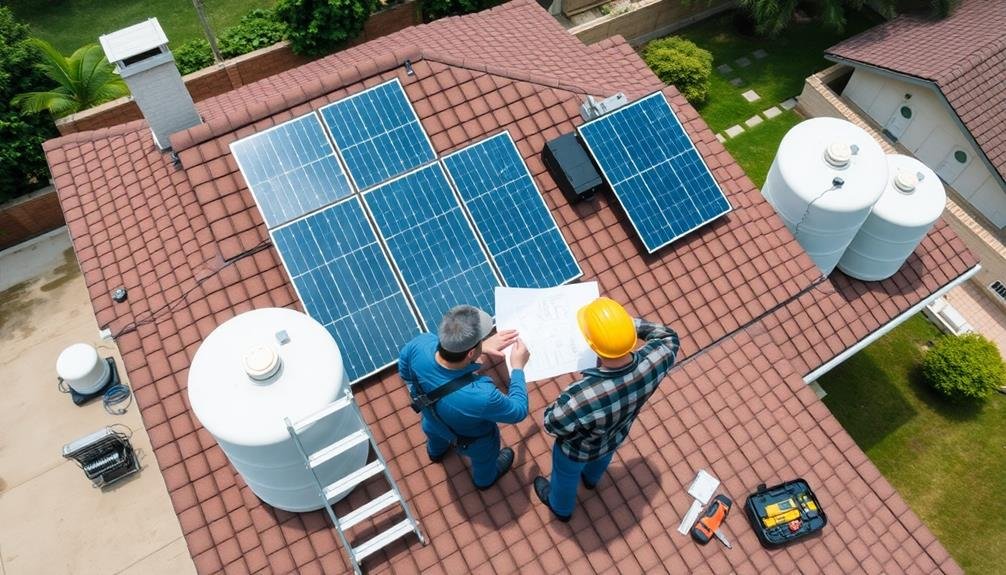
With your detailed system plans in hand, it's time to arrange for professional inspections. Contact your local building department to schedule the necessary inspections for your solar water heater installation. Typically, you'll need at least two inspections: one before installation and another after completion.
During the pre-installation inspection, an inspector will review your plans and assess the proposed location for compliance with local codes. They'll check for structural integrity, proper mounting, and adequate space for the system. After this approval, you can proceed with the installation.
Once you've completed the installation, schedule the final inspection. The inspector will verify that the system has been installed according to the approved plans and meets all safety requirements. They'll check plumbing connections, electrical wiring, and system performance.
Be prepared to demonstrate the system's functionality during the final inspection. Address any issues or concerns raised by the inspector promptly. If everything meets the inspector's approval, you'll receive the final sign-off, allowing you to activate your solar water heater and enjoy the benefits of your new eco-friendly system.
Understand Zoning Restrictions
Zoning restrictions can greatly impact your solar water heater installation plans. Before proceeding, it's essential to research and understand your local zoning laws. These regulations may dictate where you can place your solar panels, how high they can be mounted, and even if you're allowed to install them at all.
Check with your local zoning office or planning department to obtain specific information about solar water heater installations in your area. They'll provide you with the necessary guidelines and restrictions.
Common zoning considerations include:
- Setback requirements from property lines
- Height limitations for roof-mounted systems
- Historic district regulations
Don't assume that because your neighbor has a solar water heater, you'll automatically be approved. Zoning laws can vary by neighborhood or even street. If you live in a homeowners association (HOA), review their rules as well. Some HOAs have strict guidelines about exterior modifications.
If you find that zoning restrictions prohibit your planned installation, don't give up. You may be able to apply for a variance or special permit. Prepare a strong case highlighting the environmental benefits and energy savings of your proposed system.
Be ready to address any concerns about aesthetics or property values that your neighbors or local officials might raise.
Obtain Necessary Insurance Coverage
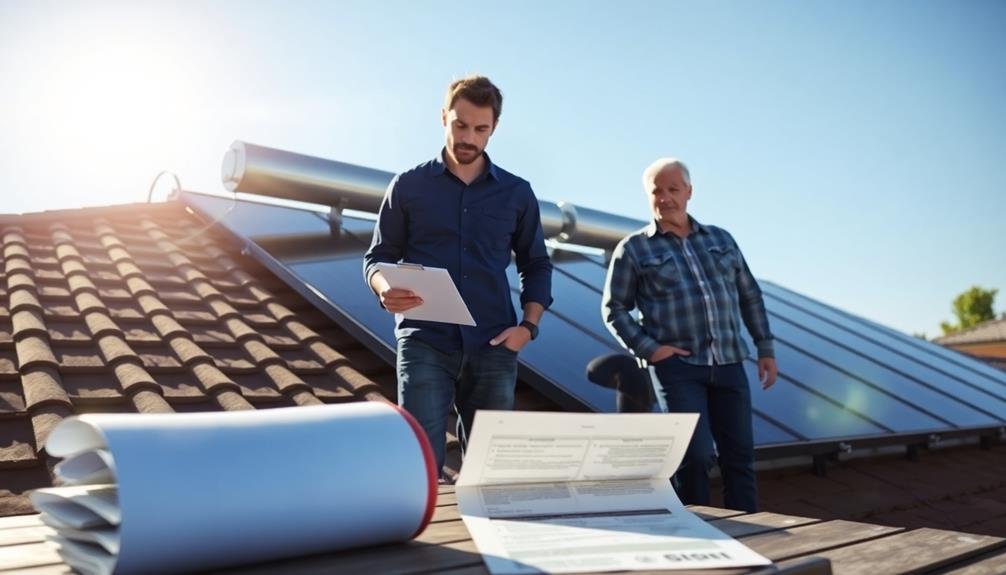
After addressing zoning requirements, it's time to focus on insurance coverage for your solar water heater.
You'll need to confirm your existing homeowner's insurance policy covers the installation and operation of a solar water heating system. Contact your insurance provider to discuss any necessary policy updates or additions.
Many standard policies don't automatically cover solar installations, so you may need to purchase additional coverage. Ask about specific riders or endorsements for renewable energy systems. These can protect against damage from storms, accidents, or equipment malfunctions.
Don't forget to inquire about liability coverage. This is essential if your system is connected to the grid or if there's any risk of damage to neighboring properties.
Some insurers offer specialized green energy policies that provide extensive coverage for solar systems.
If you're working with a solar installation company, they may offer their own insurance options. Compare these with your existing coverage to determine the best fit.
Frequently Asked Questions
How Long Does the Solar Water Heater Permit Process Typically Take?
You'll find that permit processing times vary by location, but typically take 2-6 weeks. It's best to check with your local building department for specific timelines. Be prepared for potential delays during busy seasons.
Are There Any Tax Incentives Available for Installing a Solar Water Heater?
Yes, you'll likely find tax incentives for installing a solar water heater. The federal government offers a 30% tax credit, and many states provide additional rebates or credits. Check with your local authorities for specific incentives in your area.
Can I Install a Solar Water Heater Myself Without Professional Help?
You can install a solar water heater yourself, but it's not recommended unless you're experienced with plumbing and electrical work. It's a complex job that requires specific skills and knowledge. For safety and efficiency, consider hiring a professional installer.
What Maintenance Is Required for a Solar Water Heater System?
You'll need to regularly clean the solar collectors, check for leaks, inspect valves and connections, and maintain proper fluid levels. Don't forget to flush the system annually and monitor its performance. Consider professional inspections every few years.
How Much Can I Expect to Save on Energy Bills With a Solar Water Heater?
You'll typically save 50-80% on your water heating costs with a solar water heater. Your exact savings depend on your local climate, system size, and hot water usage. You'll see the biggest impact in sunny regions.
In Summary
You've got the tools to navigate solar water heater permits successfully. Remember to research local codes, prepare detailed plans, schedule inspections, understand zoning rules, and get proper insurance. By following these steps, you'll avoid delays and guarantee your installation meets all requirements. Don't let the permit process intimidate you; it's a vital part of your solar journey. Stay proactive, and you'll soon be enjoying the benefits of your new solar water heater.

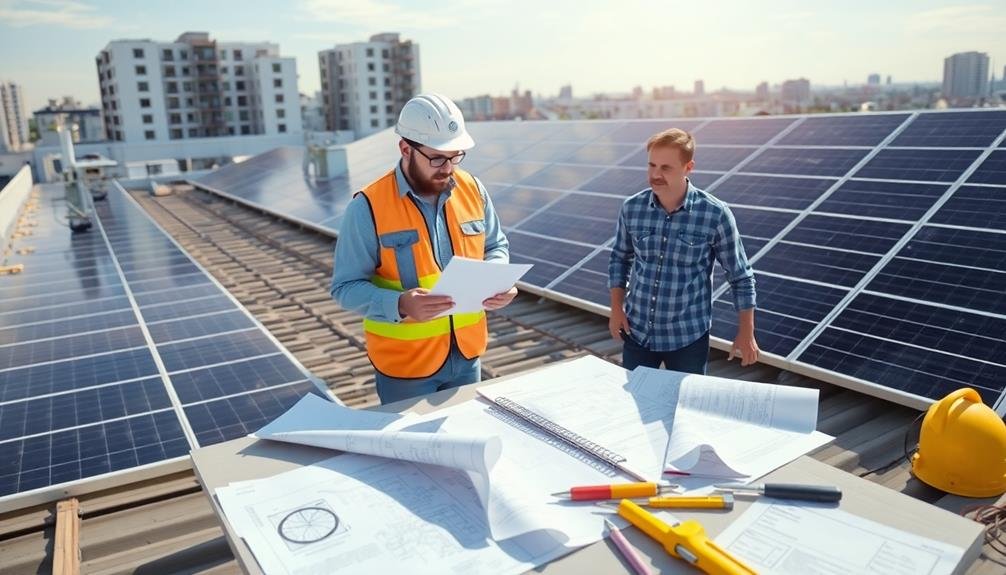
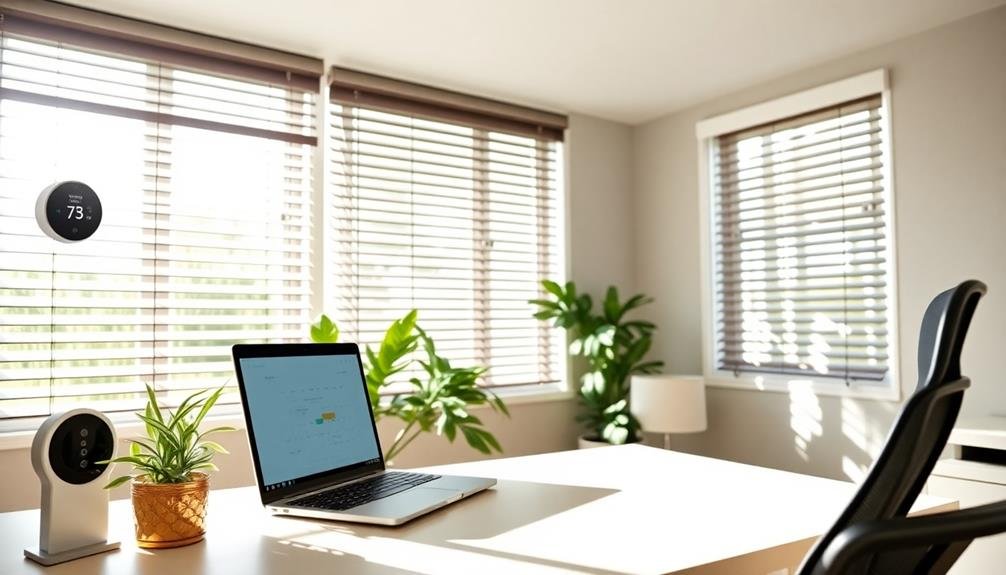
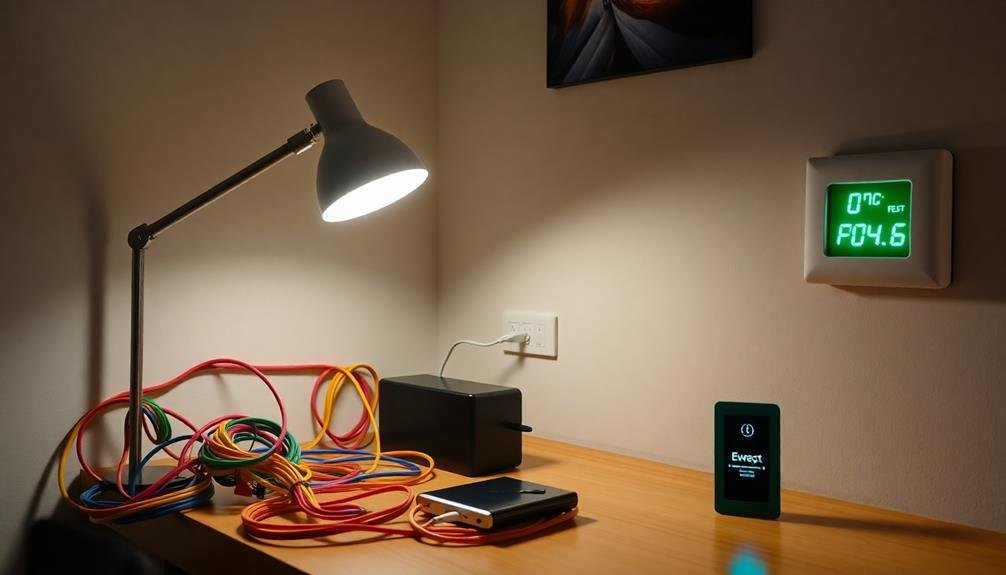
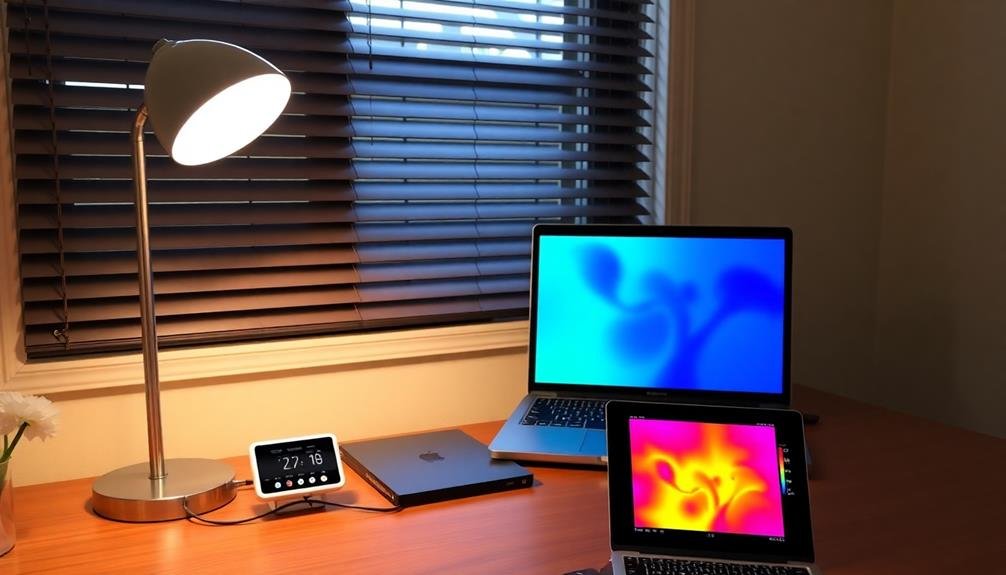
Leave a Reply